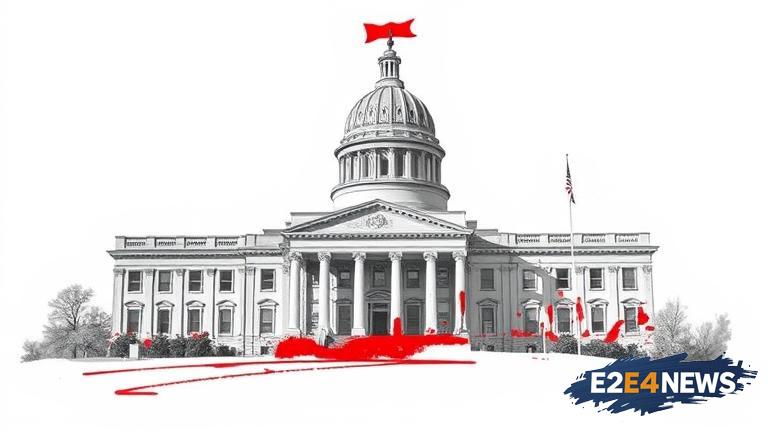The Nebraska State Legislature has advanced a bill that aims to limit the governor’s emergency powers, a move that has been met with both support and opposition from lawmakers. The bill, which was introduced by Senator Tom Briese, would require the governor to obtain legislative approval before extending a state of emergency beyond 30 days. Proponents of the bill argue that it is necessary to ensure that the governor does not overstep their authority during times of crisis. They claim that the current system allows the governor to unilaterally declare a state of emergency and impose restrictions on citizens without sufficient oversight. On the other hand, opponents of the bill argue that it would hinder the governor’s ability to respond quickly and effectively to emergencies. They claim that the legislative process is too slow and cumbersome to be effective in times of crisis, and that the governor needs to have the flexibility to act quickly to protect public health and safety. The bill has sparked a heated debate among lawmakers, with some arguing that it is a necessary check on the governor’s power, while others see it as an attempt to undermine the governor’s authority. The bill has also raised concerns about the potential consequences of limiting the governor’s emergency powers, including the potential for delayed responses to emergencies and the potential for increased bureaucratic red tape. Despite these concerns, the bill has advanced in the legislature, with a vote of 26-15 in favor of the bill. The bill will now move on to the next stage of the legislative process, where it will be debated and voted on by the full legislature. If passed, the bill would require the governor to obtain legislative approval before extending a state of emergency, and would also require the governor to provide regular updates to the legislature on the status of the emergency. The bill has been seen as a response to the governor’s handling of the COVID-19 pandemic, during which the governor imposed a number of restrictions on citizens, including mask mandates and business closures. Some lawmakers have argued that the governor overstepped their authority during the pandemic, and that the bill is necessary to prevent similar abuses of power in the future. Others have argued that the bill is an attempt to politicize the governor’s response to the pandemic, and that it would undermine the governor’s ability to respond effectively to future emergencies. The debate over the bill has highlighted the ongoing tensions between the legislative and executive branches of government in Nebraska, and has raised questions about the appropriate balance of power between the two branches. As the bill moves forward, it is likely to continue to be a source of controversy and debate among lawmakers and citizens alike. The bill has also sparked concerns about the potential impact on public health and safety, with some arguing that it could lead to delayed responses to emergencies and increased risk to citizens. Despite these concerns, the bill has gained significant support among lawmakers, and is likely to continue to move forward in the legislative process.
